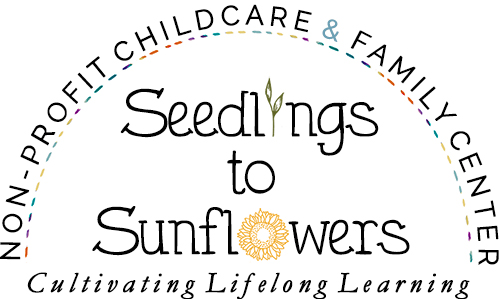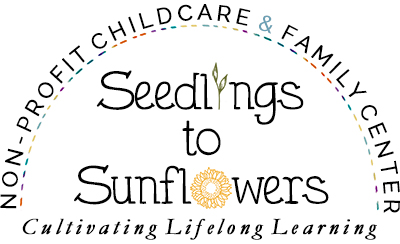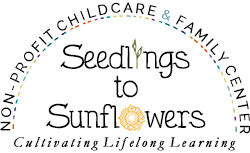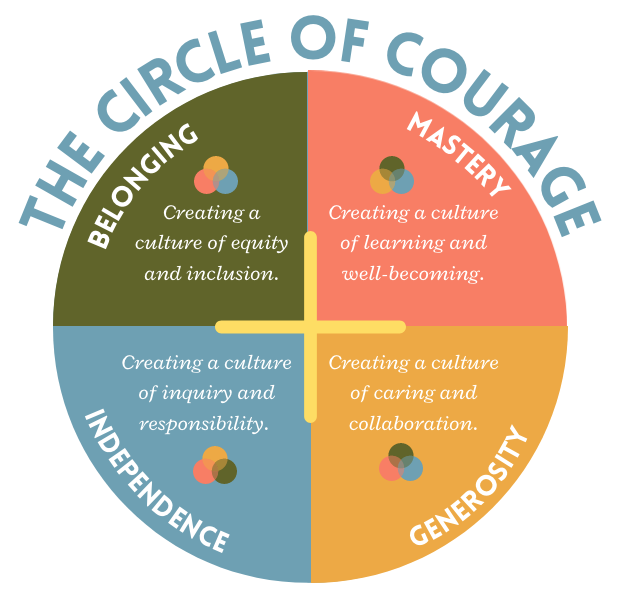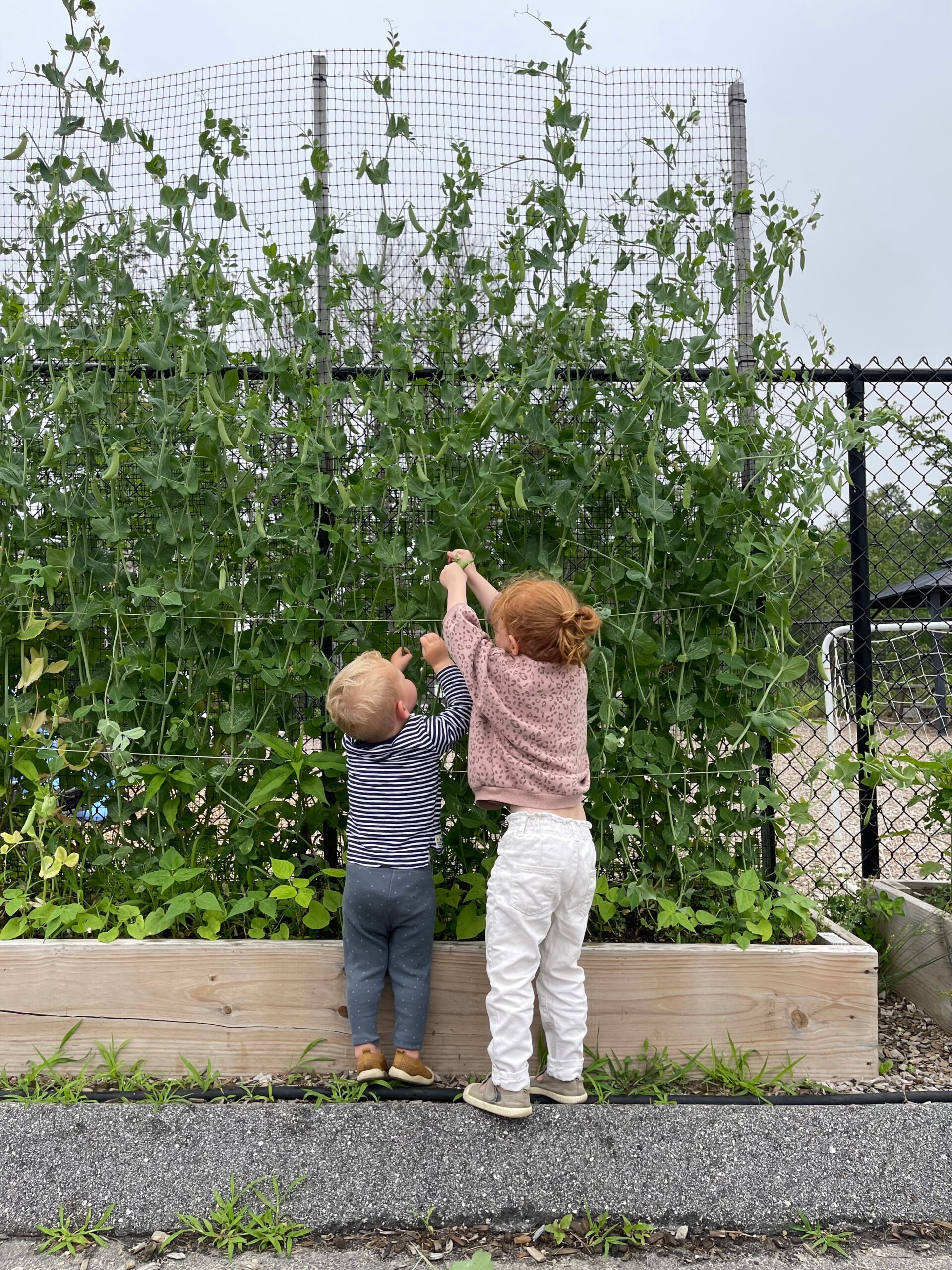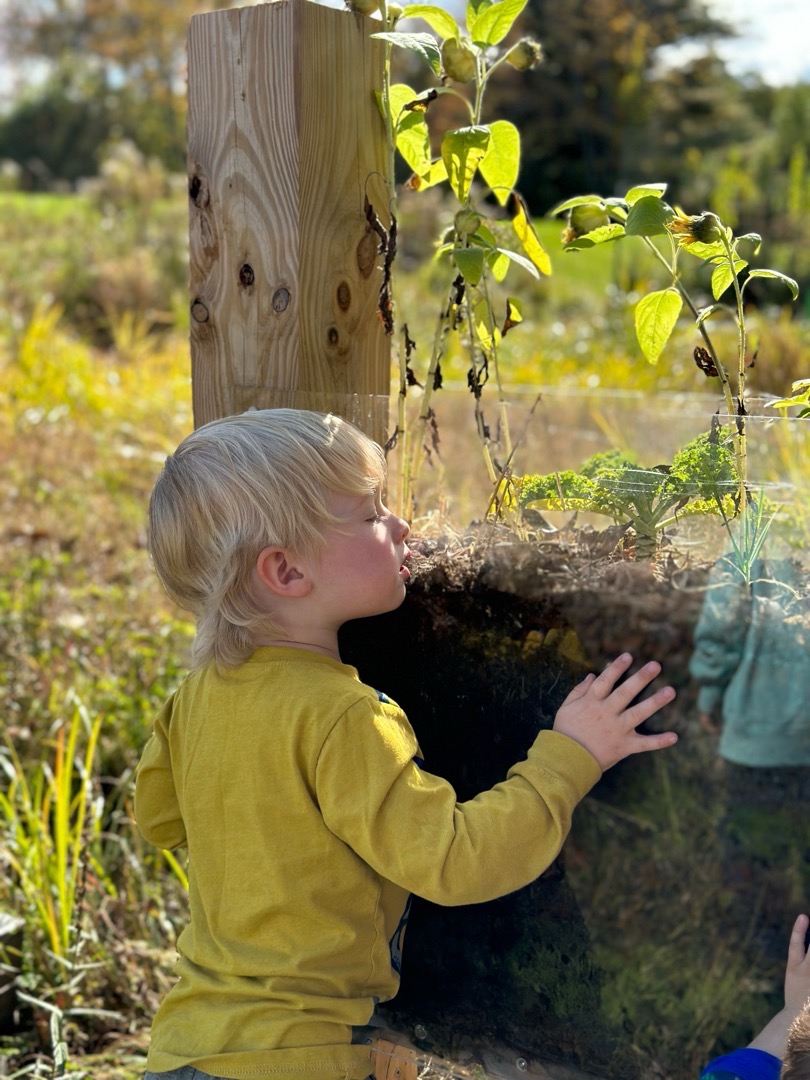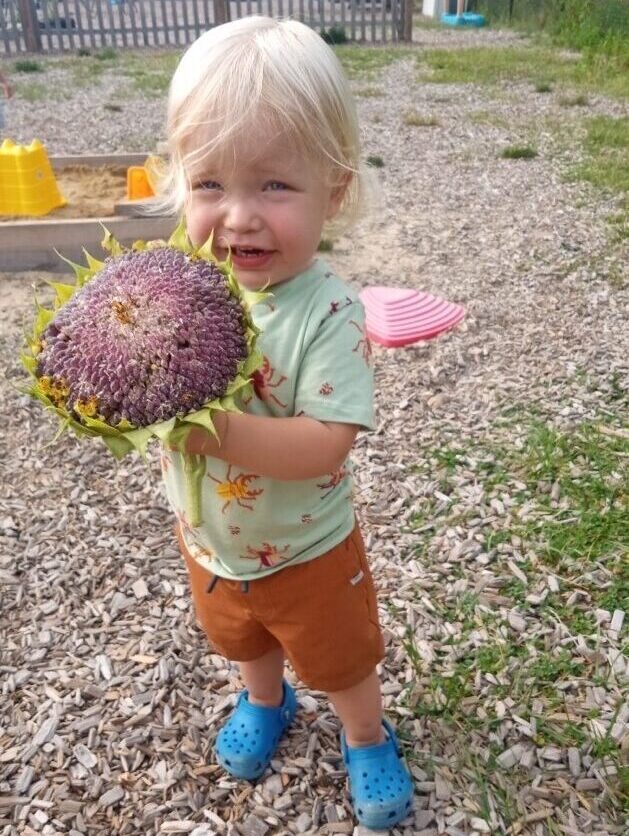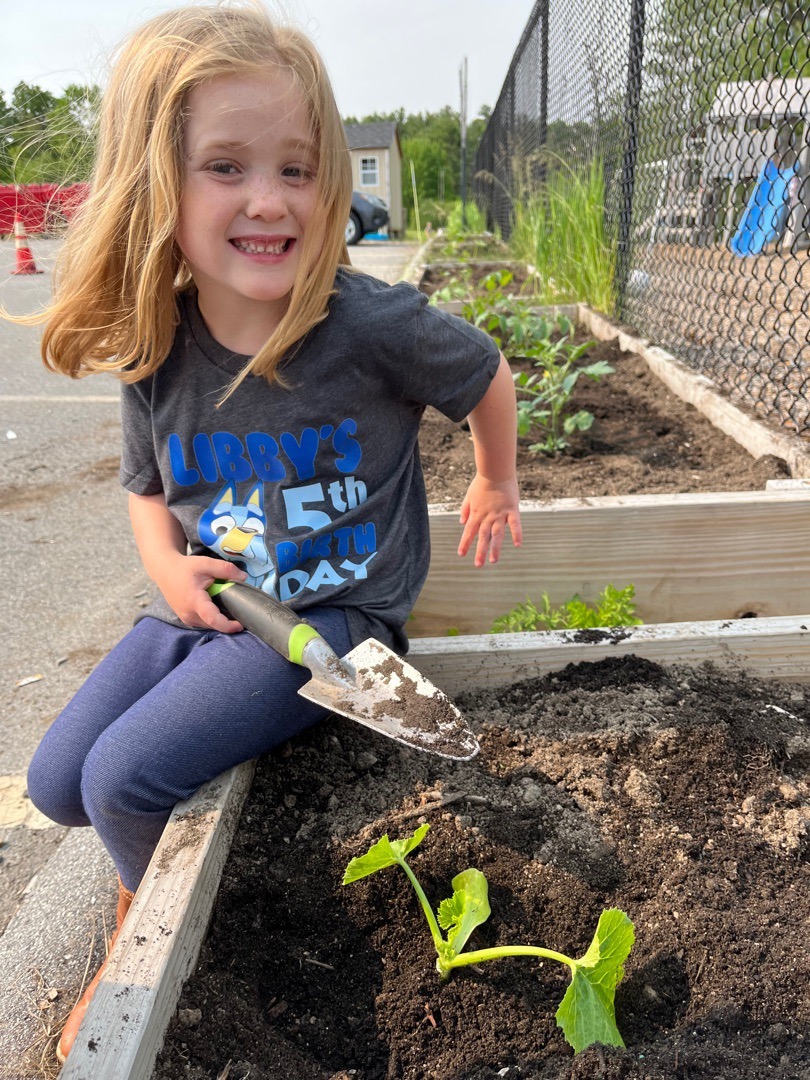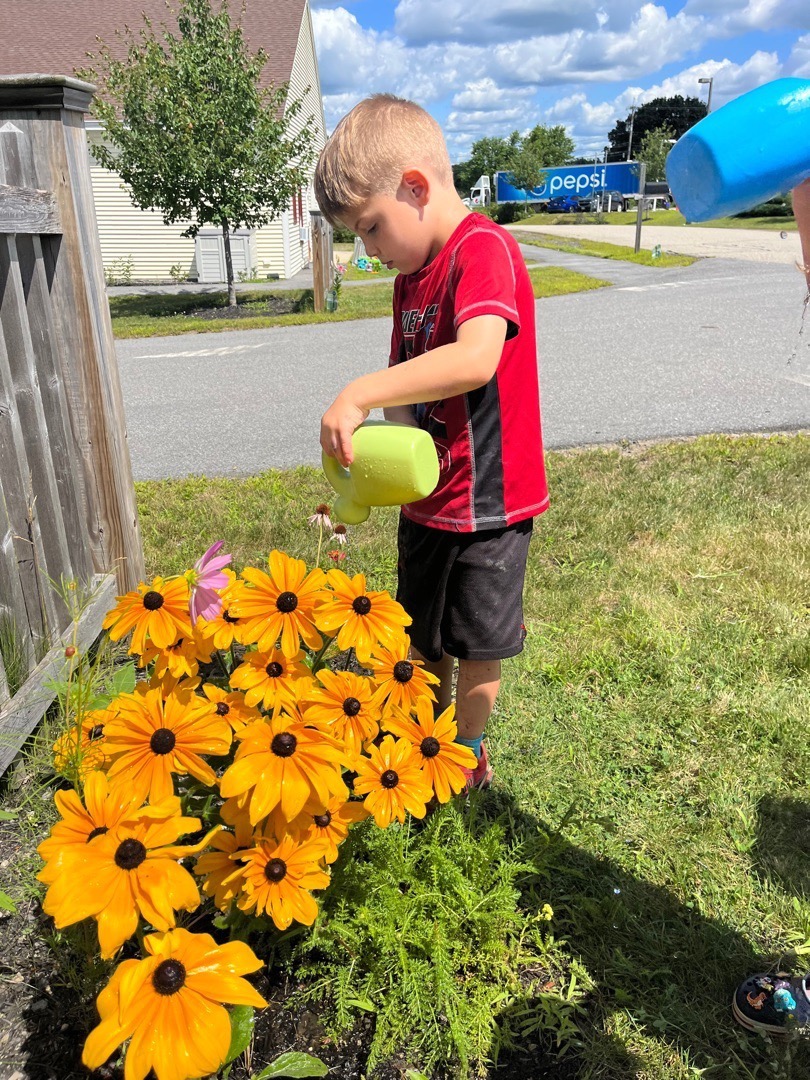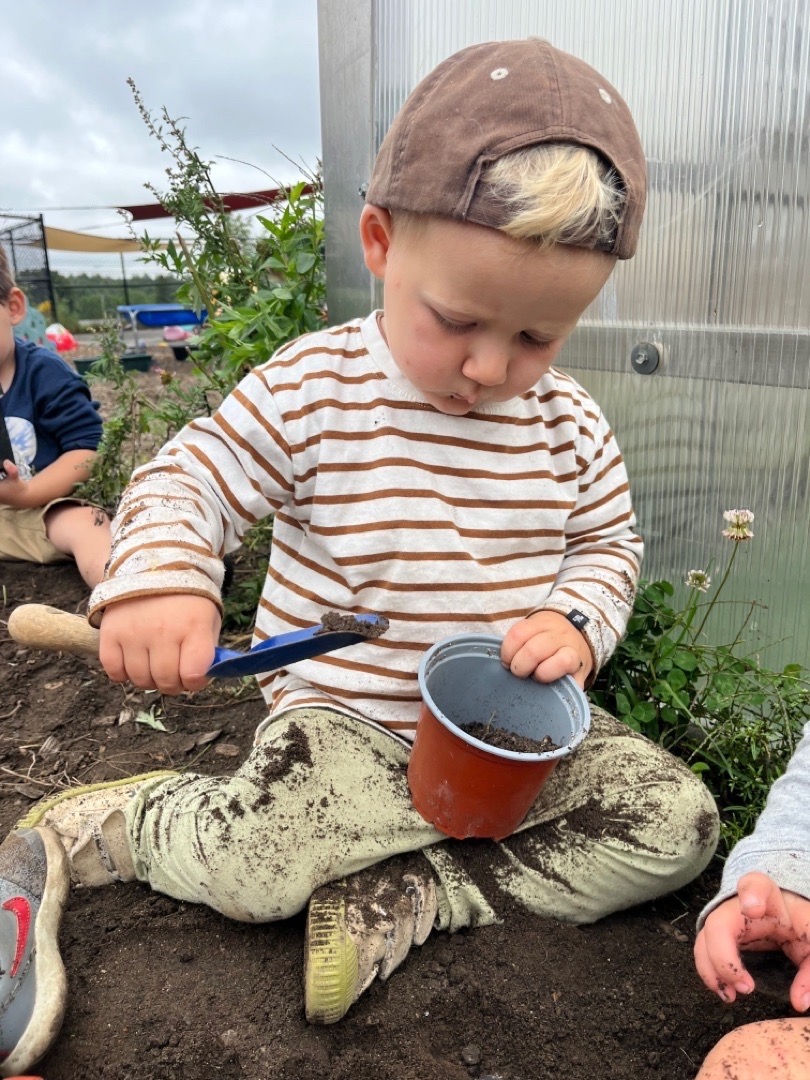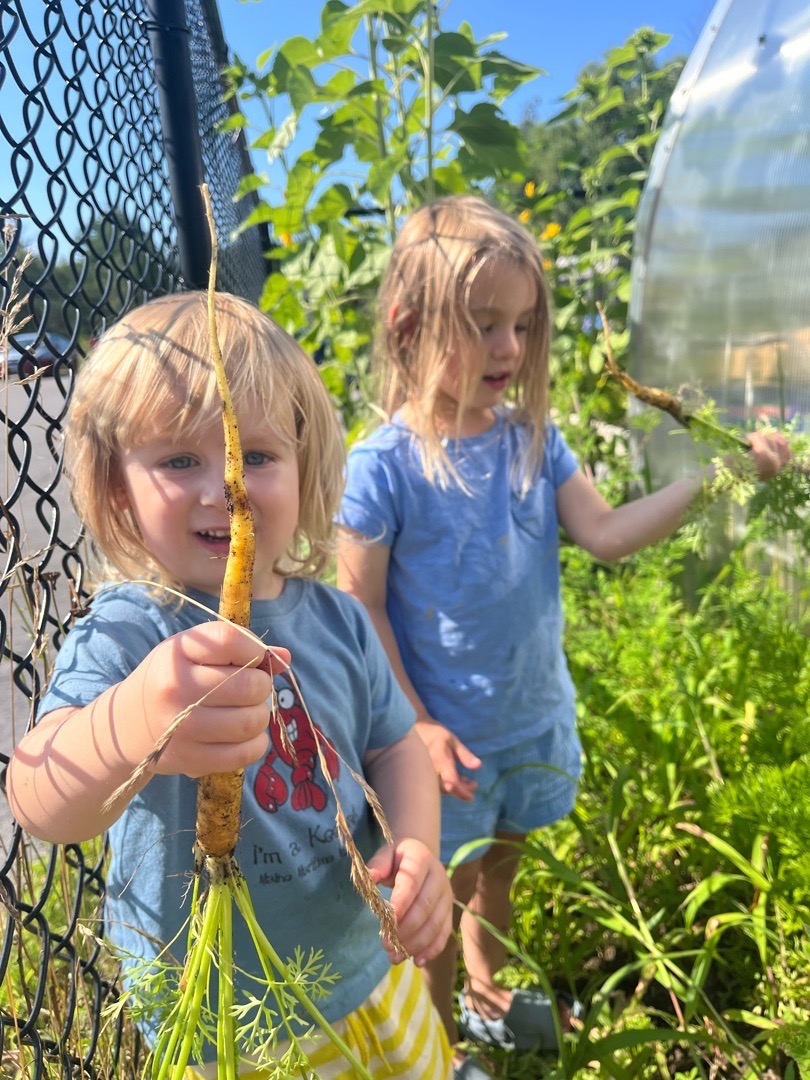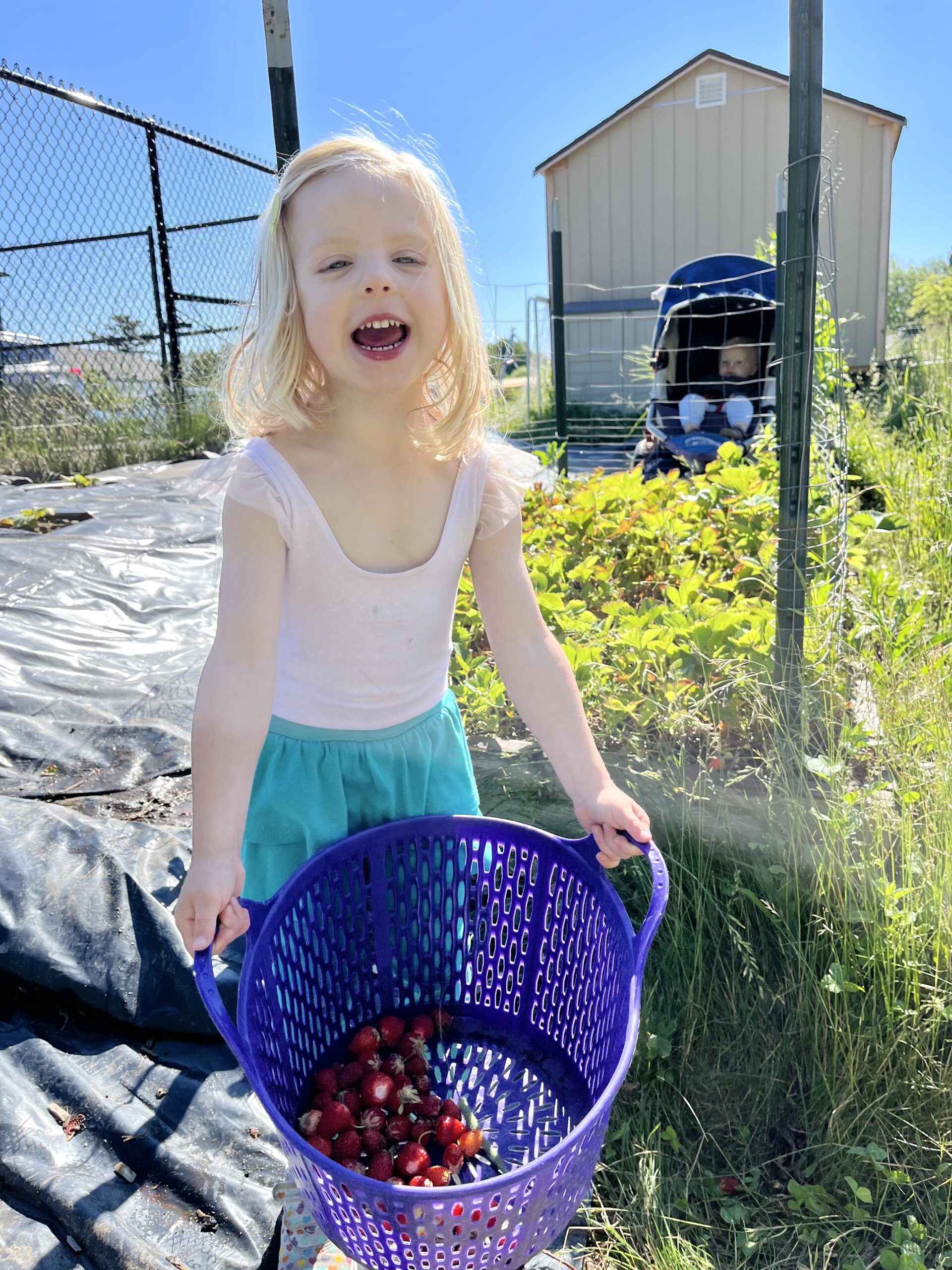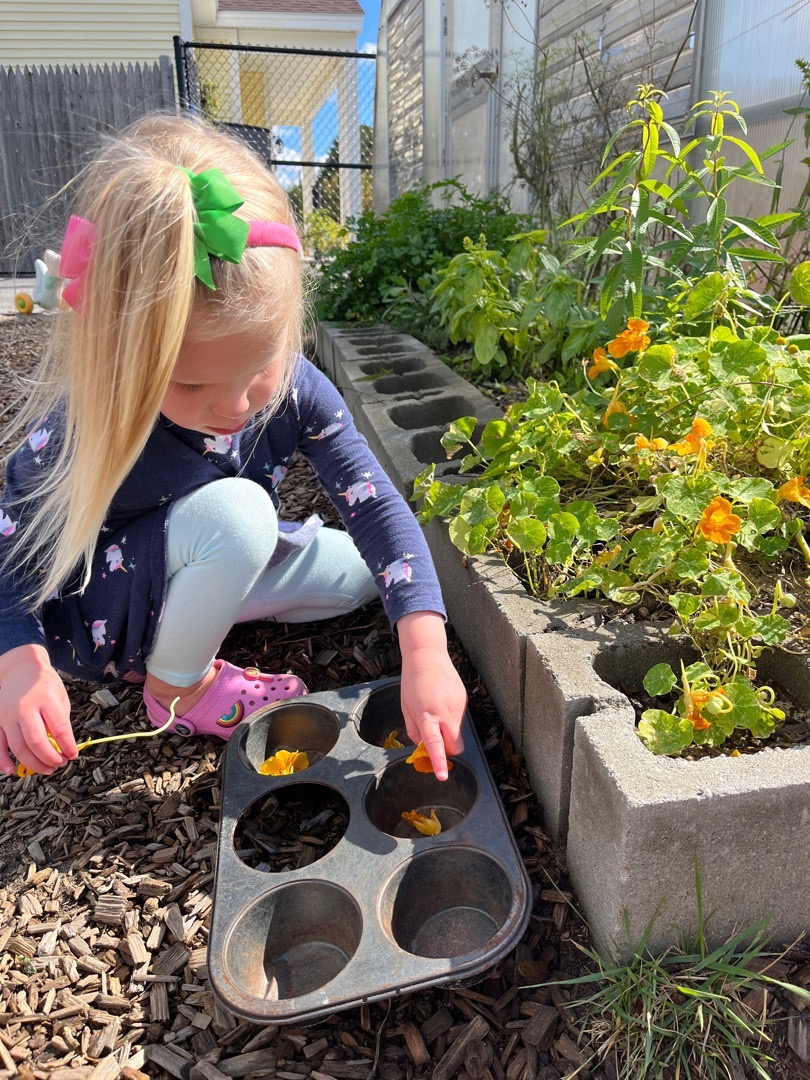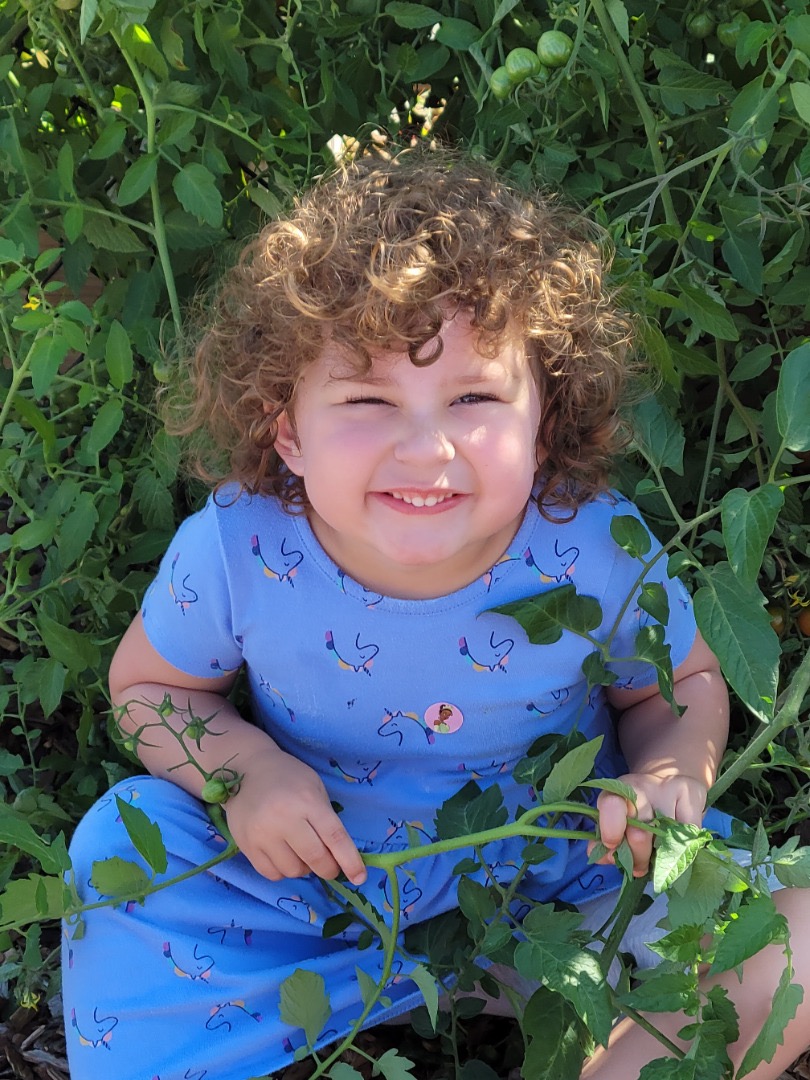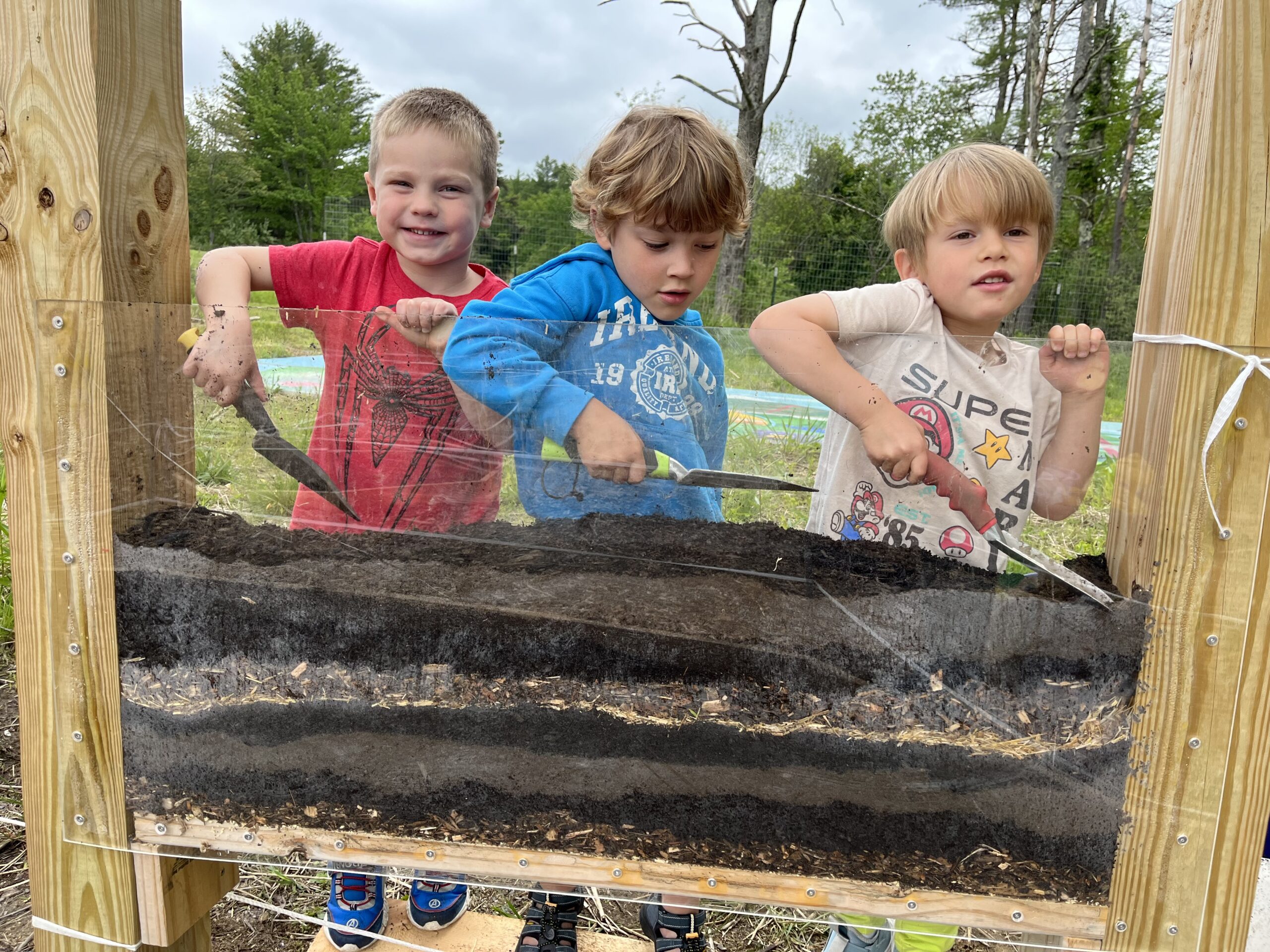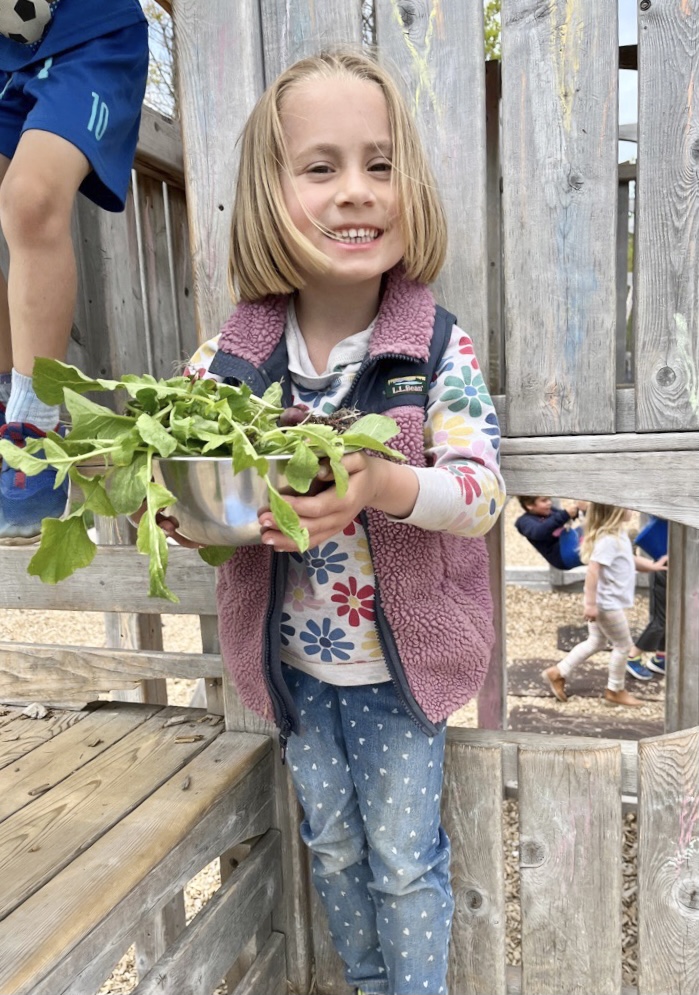Curriculum
![]()
Experiential Learning, developed by David Kolb and informed by Piaget, recognizes that knowledge is continuously gained through both personal and environmental experiences. Children are active and engaged learners; constantly researching and experiencing the world in order to make sense of their environments. Reflection is a crucial part of the experiential learning process. The teachers at Seedlings to Sunflowers recognize the importance of facilitating reflection and using it as an opportunity to help support our learners in developing critical thinking skills. As such, our teachers are often asking “why”, “how”, “how can we do it differently or the same” as they investigate experiences with the children. Reflection is always patient, encouraging and intentional with the goal of expanding the child’s learning and interest.
Each classroom is created around developmental milestones with materials that allow creativity, movement, community building, exploration, imaginary play and nature based investigation. We invite children to participate in the classroom community by building traditions into their day which include morning welcome, daily job assignments, community meals and closing meeting. Through this process children become connected to the center and in turn take greater ownership over care for the space and for each other.
Cultural Curriculum: It has been proven that students who learn about different cultures during their education feel more comfortable and safe with these differences later in life. This allows them to interact in a wider range of social groups and feel more confident in themselves as well as in their interactions with others.Throughout the school year, our students explore over 10 countries around the world.
Zones of Regulations™: The emotional development and well-being of our students is of utmost importance to us here at Seedlings to Sunflowers. We utilize a social-emotional regulation framework called Zones of Regulation™ created by Leah Kuypers, M.A. ED, OTR/L, in our classrooms. Our teachers are trained on how to use this curriculum at our in-service days. It helps children become more aware of their feelings and internal state. At the beginning of each year, the children at S2S create a visual barometer of each zone that is hung on the wall, that they can continue to reference throughout the year. It’s amazing to see them start to use it by letting us know what zone they are in! It is important to note that there are no “bad” zones, that every zone/feeling is OK.
Pre-K for ME: Pre-K for ME starts being implemented in our Preschool & Pre-K Classrooms. “This research-based, whole child curriculum meets the requirements of Chapter 124: Public Preschool Program Standards and is developmentally appropriate for four-year old children. Adapted from the Boston Public Schools’ Focus on K1 curriculum, Pre K for ME is intended to support any preschool teacher in providing a rich, play-based, intentional curriculum that is aligned to Maine’s Early Learning and Development Standards as well as the Head Start Early Learning Outcomes Framework. When implemented with fidelity, Pre K for ME builds social-emotional, executive function, language, literacy, math, and vocabulary skills. In addition, students’ conceptual knowledge around a variety of topics is enhanced—an important component for school success.” For more information visit: https://www.maine.gov/doe/learning/earlychildhood/PreK4ME.
Handwriting Without Tears®: We use Handwriting Without Tears’ multi-sensory strategies here at Seedlings to Sunflowers. This intuitive approach to writing and reading is introduced in our Sprouts Classrooms (2-3 yrs) and continued through to our Pre-K Classrooms (4-5 yrs) where we utilize the “My First School Book.” Through the use of purposeful manipulatives combined with play-based, multi-sensory techniques, this program is proven to help build a strong foundation for literacy.
Foundational Philosophies
![]()
The Circle of Courage is a model of child empowerment supported by contemporary research, the heritage of early childhood educators and Native philosophies of child care. Circle of Courage is encompassed in four core values: belonging, mastery, independence, and generosity. The central theme of this model is that a set of shared values must exist in any community to create environments that ultimately benefit all.
The Circle of Courage is a philosophy that integrates the best of Western educational thought with the wisdom of indigenous cultures and emerging research on positive youth development. While the four dimensions of the Circle of Courage can be described individually, they must be viewed as one.
Each person strives for mastery for personal growth, but not to be superior to someone else. Humans have an innate drive to become competent and solve problems. As such our classrooms, greenhouse and playground offer a multitude of opportunities to practice repetition and to overcome challenges. Our teachers encourage children to observe and listen to others—our classroom communities are an opportunity to learn from each other.
Each child is encouraged to develop a sense of independence by taking on new challenges and exploring new things. Our main goal is to provide a sense of security; promoting comfort in order to support the development of self-confidence. Children will be encouraged to make decisions, solve problems, and show personal responsibility. Teachers model nurturing, provide positive feedback and provide our children with opportunities to develop an understanding of right and wrong.
Lakota Anthropologist, Ella Deloris, described the core value of belonging in these simple words: “Be related, somehow, to everyone you know.” We view Seedlings to Sunflowers as a center which reaches beyond the children and holds the family as well. Children attending our school will interact with every teacher and will have the opportunity to engage with children from each classroom. Our goal is to build community both within our walls and outside of them. Our efforts to build community will engage children in volunteer projects, food drives, random act of kindness and connecting to community members who are in community service positions.
The act of generosity is modeled in each interaction we have. Children need opportunities to engage in helpful and thoughtful behaviors. By helping individuals and groups who live in their immediate world, children develop and strengthen a helpful inclination. Children who have a strong sense of generosity are empathetic toward others and want to help others. Teachers will reflect acts of generosity in moments of sharing, taking turns, helping a friend and problem solving during conflict.
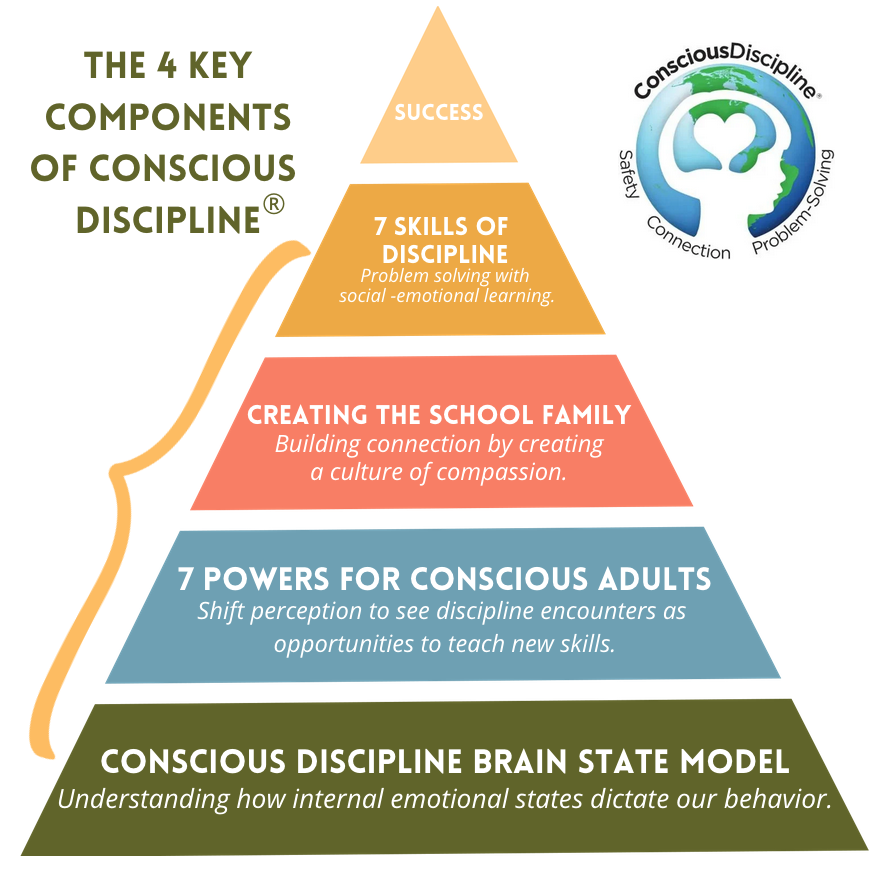
Conscious Discipline® an evidence-based and practically designed social-emotional and classroom management program that we practice here at Seedlings to Sunflowers. It empowers us to be conscious of the brain-body state in ourselves and children, and provides us with practical skills to be able to manage our thoughts, feelings and actions.
There are 4 key components in Conscious Discipline illustrated in this pyramid model: the brain state model (understanding how internal emotional states dictate our behavior), 7 powers for conscious adults (shifting perception to see discipline encounters as opportunities to teach new skills), creating the school family (building connections by creating a culture of compassion), and 7 skills of discipline (problem solving with social-emotional learning).
The understanding and practice of each component works together to create a safe and successful learning environment AND support the student-teacher connection.
Gardening & Nature-Based Programming
![]()
Tucked away in the heart of Gorham, Seedlings to Sunflowers is more than a childcare and family center — it’s a living, breathing testament to the power of learning from the land. As a non-profit organization with two vibrant campuses — South Gorham Crossing and our newer Industrial Parkway site — we’re cultivating more than gardens. We’re nurturing a generation of young stewards, rooted in curiosity, community, and care for the natural world.
Since 2018, our South Gorham Crossing campus has been home to the thriving Sunflower Community Gardens. Anchored by an 18×24 foot greenhouse, this green sanctuary defies Maine’s short growing season. Here, children sow seeds long before the last frost and witness the quiet resilience of life pushing skyward. Eight plus raised beds overflow with flowers, herbs, fruits, and vegetables, weaving through the playground like nature’s own classroom. The children take part in harvesting, cleaning, and enjoying what they’ve grown as part of their snack. It’s a place where dirt-streaked hands and sun-warmed faces mark a day well spent. The students have fun playing on our 4,800 square foot Nature Playgarden that includes an embankment slide, tire caterpillar, in-ground garden beds, and a plexiglass root garden. The garden isn’t just part of the school — it’s the heart of it, pulsing with the laughter of children and the quiet hum of bees, reminding us all that we belong to something greater.
At our Industrial Parkway campus, now in its second year, the spirit of growth flourishes anew. We’re building on a foundation of raised beds, dreaming bigger and digging deeper. Each season, children learn by doing — planting, watering, harvesting — becoming active participants in the web of life. Lessons extend beyond the rows of vegetables, connecting soil to daily meals in our school-wide nutrition program. By participating in this local food web, children begin to understand where their food comes from — and more importantly, why healthy eating matters. From planting seeds to tasting the fruits of their labor, they experience firsthand the value of fresh, whole foods and the effort it takes to nurture them. It’s a lesson that lingers long after the last tomato is picked.
Our sensory garden, alive with the scents of mint and lavender, invites children to explore with every sense. A pollinator garden is taking root, designed with native plants to welcome butterflies, bees, and other essential visitors. These spaces aren’t just for growing plants — they’re for growing empathy, patience, and awe. And because every child deserves a seat at nature’s table, we’re building wheelchair-accessible beds, ensuring that all students, regardless of ability, can plant, tend, and harvest alongside their peers.
Our Garden Program Coordinator also engages our students at both locations with indoor gardening activities throughout the year. Seedlings to Sunflowers is a living lesson in what it means to care — for the earth, for each other, and for the future.
Food Program
![]()
We serve breakfast, lunch, and 2 snacks to students enrolled in our food program. We incorporate fresh, local ingredients sourced from Native Maine and Bumbleroot Organic Farm. We offer a variety of well rounded meals introducing our students to different flavors and textures. Our Chef often incorporates foods from the countries that our students are learning about from our Cultural Curriculum. We teach the importance of healthy eating and educate children about sustainable food practices.
We are a proud partner of the Maine Health’s Let’s Go! 5-2-1-0 Program and have even received their GOLD STAR Award for our commitment to excellence in healthy eating and active living for children and families. This means that we are committed to offering healthy foods and activities to our students and sharing Let’s Go!’s plethora of healthy lifestyle ideas and activities with our families. This program also helps us to establish healthy living goals for our school, which we are dedicated to adhering to.
